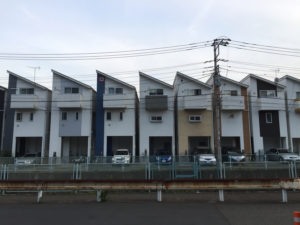Beautiful Stories, Hard Realities
Real estate agents/realtors are always holding seminars in Tokyo, Osaka and elsewhere, luring in amateur investors (for Japanese investors so far)
and telling them beautiful stories of how this person or that person got rich in the property market.
I never exaggerate such successes in my seminars, although of course they do exist.
Instead, I always tell the audience true stories from my experience and those of other clients and inexperienced investors, and in particular about the mistakes made.
I always ask these fledgling investors what kinds of deals they’re doing, or are about to do.
One of them was a doctor, obviously very intelligent and earning quite a good salary.
He’d made two deals worth almost a million dollars, but was losing money from the start.
On the advice of his real estate agent, he’d made these deals on a negative cash flow basis. I said wow, why did you do that?
And he told me the agent had said he could apply the loss to his taxes.
Tax saving is obviously a very important aspect of investing, but you need to make money first to save on tax.
This doctor did not understand the basic concept. Real estate companies know that doctors make a lot of money but are usually not financially literate—
they spend money studying math and English but not investment strategies. And after they graduate they naturally devote almost all their time to their profession.
This illustrates the low level of financial literacy investors in Japan have, and why rogue brokers or companies can easily trap them.
If the real estate firm serving this doctor were just one small devious company, it wouldn’t be a surprise.
But the company is large, listed and runs ads on TV every day. They have to get clients to buy and sell properties to pay their overhead and for all that promotion and so on. I always care more about the investors because I want them to make money. It has to be a win-win.
Unlike the doctor, many individuals don’t have the opportunity to reclaim their income tax, because as employees working for companies
they are taxed automatically.
The doctor had already made those deals. Rather than continue to lose money for ten years, I suggested that he sell—even if it’s at a loss—and make a wiser and profitable investment. Having those negative assets means you can’t make another investment,
because banks here won’t lend to people with bad assets or negative balance sheets.
Investors should always sit tight and listen carefully to what real estate companies are telling them.
If they don’t understand the major points of the deal, they should get answers before they sign, or hire someone like me
who can give honest and unbiased advice.
This is essential for investors coming from abroad who are unfamiliar with the Japanese property market.
Final thought
Don’t trust real estate agents easily and try to give the endorsement with caution.
As far as I know more than half of agents here do not behave
with good will. They always try to sell what they want to sell not what you want to buy.
Other Helpful Articles
How the commission for agents (realtors) works in Japan ?: Risks you should watch
Can foreigners get a MORTGAGE LOAN for home in Japan ? : Key Factors
Can foreigners buy a property in Japan ? : Fundamental rules when acquiring a property
Toshihiko Yamamoto
Real estate investing consultant and author.
Founder of Yamamoto Property Advisory in Tokyo.
International property Investment consultant and licensed
real estate broker (Japan).
He serves the foreign companies and individuals to buy and sell
the real estates in Japan as well as own homes.
He holds a Bachelor’s degree in Economics from
Osaka Prefecture University in Japan
and an MBA from Bond University in Australia
Toshihiko’s book, “The Savvy Foreign Investor’s Guide to Japanese Properties: How to Expertly Buy, Manage and Sell Real Estate in Japan”is now out on Amazon, iBooks (iTunes, Apple) and Google Play.
About the book
Amazon.com Link



